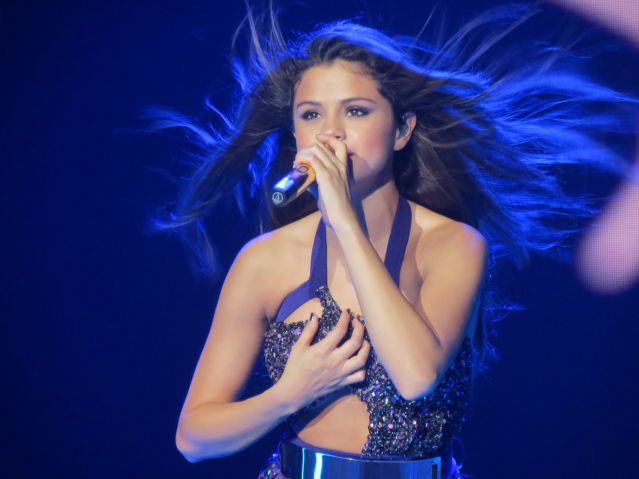Attention
Six Reasons Pop Singers Pronounce Some Lyrics in Odd Ways
'Secret Asian Man' and Other Mysteries of Song
Posted October 7, 2015

Recently I was contacted by Reggie Ugwu, deputy Music Editor at BuzzFeed. He was fascinated by how pop singers pronounce some words (especially the vowels) in unique ways when they sing, and wondered why singers are compelled to do this?
Intriguing question! Here's the full response I gave him, with some added musical illustrations. (To read Reggie’s story on BuzzFeed see here).
I believe there are many reasons pop singers may form words in idiosyncratic ways when singing..
1. To define their individual sound, like a sonic signature that makes them distinct.
It’s another way to ‘make a song your own’ or to express your individuality. Creatively, you inhabit the attitude and character of the song through the way you form the words.
2. To display more colors (timbres) of the voice. You can get many different effects by varying the way you tighten or relax your lips or your throat when playing a saxophone. In the same way, you can explore a whole range of qualities and colors of sound from forming lyrics in different ways while singing, because it essentially changes the shape and dimensions of your instrument - which in turn affects timbre (tone color) of your voice.
Especially when you play with the vowels - because vowels are what mostly carry the tune in song. It’s like you’re sculpting the way your body as an instrument is making the sounds. And that can really change the timbre or sound quality of your voice.
3. Sometimes it’s for the sake of the rhyme. There are numerous examples. Alanis Morissette’s You Owe Me Nothing in Return: opening lyrics: "I'll give you countless amounts/of outright acceptance", she changes the last vowel to "accept-ounce" to resemble rhyming with "amounts"; "I will give you encouragement/ to choose the path that you want/" she changes the last vowel to “encourage-MANT” to rhyme with “want”.
4. Sometimes it’s to get the best sound out of the vowels - which carry the tune. Melodies are carried mainly by the vowels in the lyrics. And different vowels project differently: The "ee" in “oh, say can you SEE” tends to sound very bright, so this vowel is often modified by singers. (My high school singing teacher would ask us to “show less teeth for the ‘ee’” for a better sound). Opera singers also pronounce words differently when singing than when speaking; it's not just pop singers.
The “r” is a special case as it’s classified as a semivowel. The American “r” is a "retroflex r" because you produce it by curling the tongue back on itself. The American "r" can cut a vowel short when singing a word like “girl” and make the sound die quickly - like you're speaking the word "girl". Sometimes that’s the effect you want. Other singers will soften or omit the “r” in the middle or end of a word to produce a longer and more open, singing quality. (Alessia Cara's Here: The lyric "here" is repeatedly sung without the full /r/)
That’s one reason why some US bands sound British when they sing, and some British bands sound American - among other factors.
5. While vowels carry the tune, many consonants stop the flow of the melody, so they’re sometimes emphasized or omitted depending on the desired effect.
Remember Johnny Rivers’ version of Secret Agent Man? For the longest time I thought the song was about a “Secret Asian Man”.
A more current example: Rachel Platten’s Fight Song. When she sings "‘cause I’ve still got a lot of fight left in me", it sounds like "a lot of FIE left in me” (even in live performances). Many singers deemphasize unvoiced consonants like /t/ and /p/ as it can break the flow of the voice. In other cases, consonants like /t/ and /k/ are emphasized to give a crisp percussive feeling to a song.
6. And sometimes it changes the way the listeners will hear the structure of the music.
For instance, forming a word a little differently can interplay with the rhythm or melody to anticipate the beat, drag behind the beat, or create more musical emphasis.
Selena Gomez’s Good For You was the song that initially caught Reggie's attention. Her rendition of "good" prolongs the vowel, makes it more complex and interesting - and it also puts more structural emphasis or accent on “good” musically. It sharpens the hook.
Overall, the effect is subtle but a lot more catchy.
So how might these idiosyncrasies influence the listener?
It probably makes a singer more distinctive as we often identify things by how they deviate from the standard. And it might make our senses more alert because we have to pay more attention.
It can give the singer and the song more character when the way the lyric is sung becomes part of the musical impact.
But it's a balancing act- because if there's too much deviation, lyrics can sound too affected or contrived, and the intelligibility of the words can suffer. (Though see this recent 2015 study that showed that lyrics in pop/rock songs are more accurately reproduced by listeners than lyrics in Classical vocal music [Condit-Schultz & Huron, 2015]).
Sometimes it’s not a big deal when the sound is more important than the meaning, but at other times you can lose the magic of a great lyric.
-Dr Siu-Lan Tan, first author of Psychology of Music: From Sound to Significance (Routledge) and primary editor of The Psychology of Music in Multimedia (Oxford Univ Press). My blog on Psychology Today is linked here.
The study by Condit-Schultz and Huron 2015 appears in Music Perception, 30(5), pp. 470-483. Click here for Abstract.
To read Reggie Ugwu’s story on BuzzFeed click here




